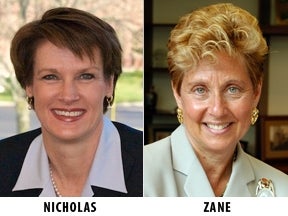So-called “global payments” have been touted as the key to health care payment reform in Massachusetts; however, if this new system calls for change solely from doctors and hospitals it cannot succeed. Global payment success will require global participation — from insurance companies, employers, consumers, government and providers. Here’s how everyone needs to step up:
Employers
We must say goodbye to the traditional, yet cost-busting practice of providing employees unrestricted access to health care services.
Employers will have to offer plans in which employees select a primary care physician and get their health care within a smaller, interconnected community of quality providers. Employers will need to actively educate and inform their employees about the reasons and benefits behind such a new system. Otherwise, employers would essentially be stepping out of the process. Employers, physicians and patients must work together; otherwise, we are deluding ourselves about the savings that reform can yield.
Insurers
Insurers have spent decades accumulating multi-million dollar risk reserves. Since global payment would transfer much of their risk to hospitals and doctors, it is appropriate and fair to ask that insurers transfer a commensurate amount of reserves to providers.
Some insurance executives say that providers will only be asked to take on “performance risk” and not “insurance risk.” Is this just rhetoric, or can a system be devised in which hospitals and doctors truly assume only those risks they can control? If patients have unrestricted access to care, providers clearly won’t have that necessary control.
Government
Government needs to end its chronic underpayment for care within the Medicaid system. In 2006, the state legislature acknowledged hospitals were underpaid and made it a priority of health care reform to increase Medicaid payments. Good progress was made initially, but in today’s struggling economy, providers are actually paid less than they were before the passage of health reform — roughly 70 cents for every dollar of care provided.
Hospitals and physicians will need funding from both insurers and government. For example: creating and implementing compatible, secure health IT systems is vital, but expensive. To date, the costs of establishing such an infrastructure have been unrecognized and underestimated.
Patients/Consumers
Patients will need to have more “skin in the game” — clearly understanding their own contributions to care and its costs, beyond just co-payments and deductibles. More care doesn’t always equal better care. There may be fewer choices under global payment, yet physician networks can provide the best opportunity to coordinate care. This shift is at the heart of any successful new payment system.
Healthcare providers
Providers fully accept that we need to make significant changes as well. We must reduce re-admission and infection rates, set standards for effective treatments, and encourage more doctors into primary care.
Four years ago Massachusetts tackled universal coverage by bringing all stakeholders together. Reforming our system further will take nothing less.
Lynn Nicholas is the president and CEO of the Massachusetts Hospital Association. Ellen Zane is the president and CEO of Tufts Medical Center is chair of the Massachusetts Hospital Association board.

